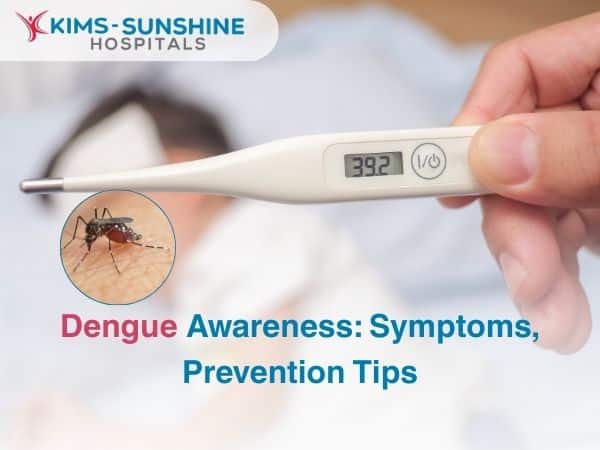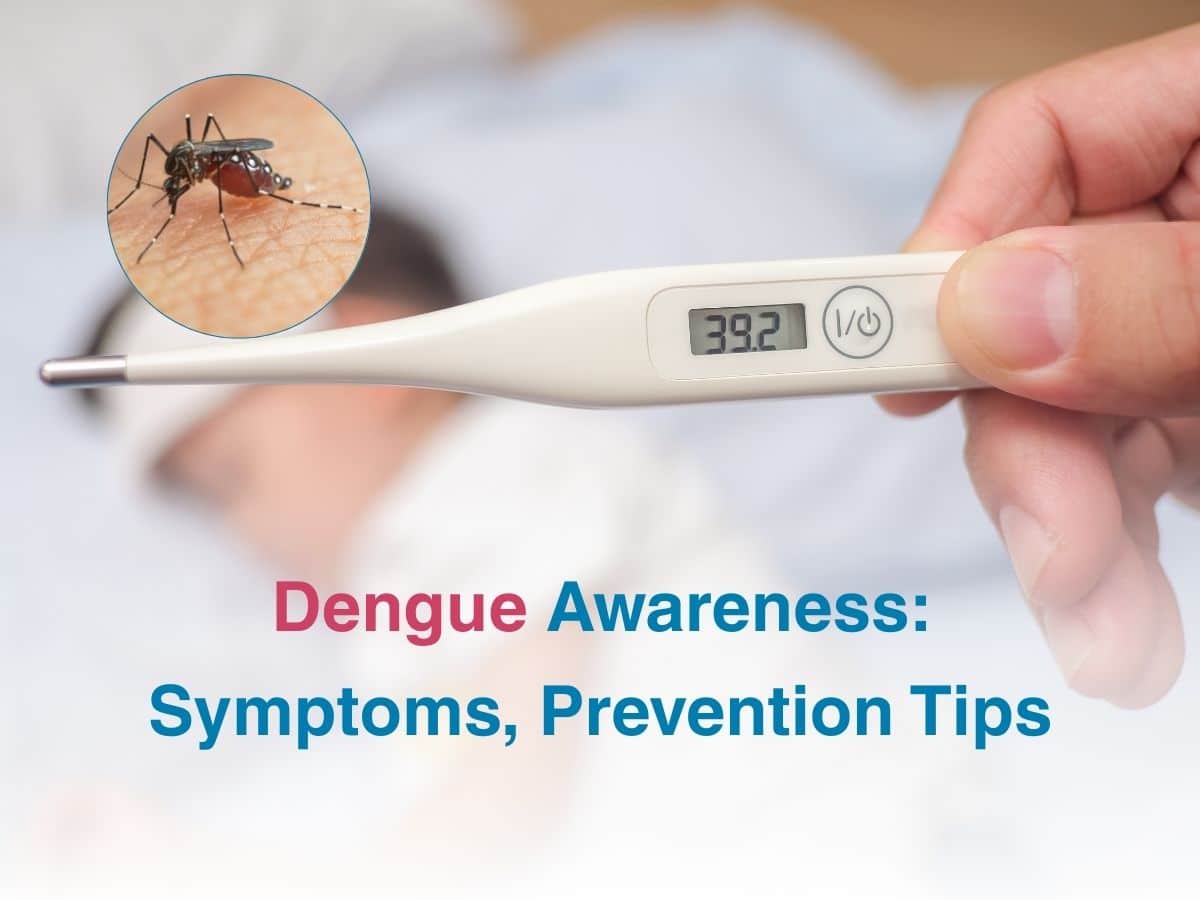
Dengue Awareness: Symptoms, Prevention Tips
 Dengue is an infectious disease that is caused by mosquito bites, which transmit the dengue virus into the bloodstream. The virus then begins to infect the body- causing a barrage of symptoms- like very high fever, severe joint pain and extreme exhaustion, all while platelets are systematically getting destroyed in the background- reducing your immunity and leaving you vulnerable to other opportunistic infections. Dengue cases increase greatly in the monsoon season every year and are a major public health concern in the country.
Dengue is an infectious disease that is caused by mosquito bites, which transmit the dengue virus into the bloodstream. The virus then begins to infect the body- causing a barrage of symptoms- like very high fever, severe joint pain and extreme exhaustion, all while platelets are systematically getting destroyed in the background- reducing your immunity and leaving you vulnerable to other opportunistic infections. Dengue cases increase greatly in the monsoon season every year and are a major public health concern in the country.
Platelet count in dengue patients-
One of the most common questions patients and families ask in hospital corridors is “Doctor, what is the platelet count?”, because in dengue this tiny figure becomes almost like a report card of recovery or decline, as the virus interferes with the bone marrow’s ability to produce platelets and causes counts to drop alarmingly fast. But, what many don’t realise is that not every drop is dangerous. What actually matters more is the overall trend, the presence of bleeding symptoms and close monitoring – which is why doctors prefer regular blood tests every 24 to 48 hours to track changes rather than panic over a single number.
Dengue Home Care Tips-
If you’ve ever cared for a loved one with dengue at home, you’ll know the worry that comes with every meal refused or every glass of water pushed away, but the truth is recovery depends less on exotic concoctions and more on consistency. Keeping the patient hydrated with water, ORS, coconut water, or soups, encouraging small but frequent meals of fruits, dal, or khichdi and giving the body time to rest deeply without unnecessary strain, while also being careful not to offer painkillers like ibuprofen or aspirin, because they can worsen bleeding risks are all great measures. Paracetamol, when prescribed by a doctor, is the only safe option for the high fever that comes and goes with this condition.
Dengue Prevention During Monsoon-
Every year as the monsoon clouds roll in and families enjoy the cool relief from summer, doctors brace themselves for an influx of dengue cases, because the rains leave behind puddles in corners, blocked drains and half-filled containers that quickly transform into breeding grounds, which is why monsoon prevention is less about fighting the mosquitoes directly and more about cutting off their nurseries. Something as simple as turning over empty buckets, checking rooftops for water collection and working with your community to keep public spaces clean, works better than having to come up with more elaborate schemes for prevention.
Best Mosquito Repellents For Dengue-
When it comes to repellents, the choices in Indian households range from grandma’s neem oil to modern DEET- based creams.While each has its merits, the best protection often comes from layering- using creams or sprays on skin during the day when Aedes mosquitoes are most active, plugging in vapourisers indoors, sleeping under nets especially for children and applying herbal sprays on curtains or bedding. This not only lowers the risk of bites but also gives families the reassurance that they are taking active steps to shield themselves.
Dengue Blood Test Detection-
While patients often focus on the fever and pain, for doctors, the real confirmation lies in the blood work – because the NS1 antigen test can detect the virus in the first week, followed by antibody tests that mark recent or past infections. Sometimes, PCR testing for exact viral detection, all supported by platelet and haematocrit counts give clues about disease severity and since early detection helps guide treatment and monitoring, doctors usually advise not to wait for the fever to “settle on its own” but to get tested within the first few days if dengue is suspected.
Conclusion
Dengue may arrive like any other viral fever but its impact can range from a mild inconvenience to a major health crisis and the real difference between those outcomes often comes down to awareness – whether that’s knowing the early warning signs, recognising the danger of low platelets, or simply clearing that forgotten bucket in your backyard before it fills with rainwater. So if there’s one thing to take away, it’s that vigilance at home, responsibility in communities and timely medical care can together keep this mosquito-borne menace from spiralling out of control, turning what often feels like an inevitable seasonal outbreak into a manageable, preventable challenge.






